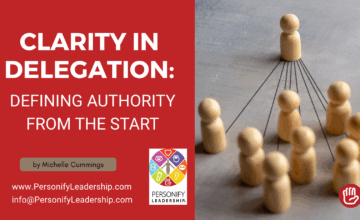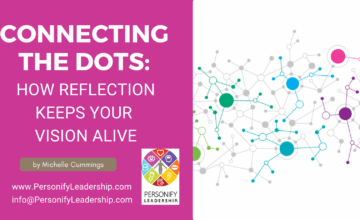The Discipline of Staying Present
- Mar 21, 2025
- By personifyadmin
- In Newsletters
- 0 Comments
Every leader knows the importance of listening, yet distractions are a constant challenge. A phone vibrates. A notification pops up. Someone walks by your office. Even your own thoughts about the next meeting or unfinished work can pull you away from the person in front of you. These moments matter more than we think.
The first step toward being fully present is noticing when your focus slips. Distraction often starts small. Your eyes flicker toward an email alert, or your mind wanders to a pending decision. These tiny moments may seem harmless, but they interrupt the connection and reduce your ability to truly hear the other person.
People can sense when you are not fully engaged. Even if you catch every word, your body language and micro-reactions can signal disinterest. This erodes trust over time. Conversations become shorter and less open because people begin to feel their input is not valued.
Recognizing distractions as they happen allows you to choose a different response. You can silence devices, shift your posture toward the speaker, and mentally recommit to the moment. These small resets send a powerful message that the conversation is important to you.
Focused listening also improves the quality of your leadership decisions. When you give someone your full attention, you gather more accurate information, pick up on subtle emotional cues, and ask better follow-up questions. These insights can be the difference between solving a problem effectively and missing the root cause.
The ability to stay present is a discipline. It requires awareness, intention, and practice. Over time, catching distractions in the moment becomes easier, and conversations become more meaningful and productive.
Our Core Program equips leaders with practical tools to recognize distractions, regain focus, and create conversations that strengthen trust and clarity.






Recent Comments